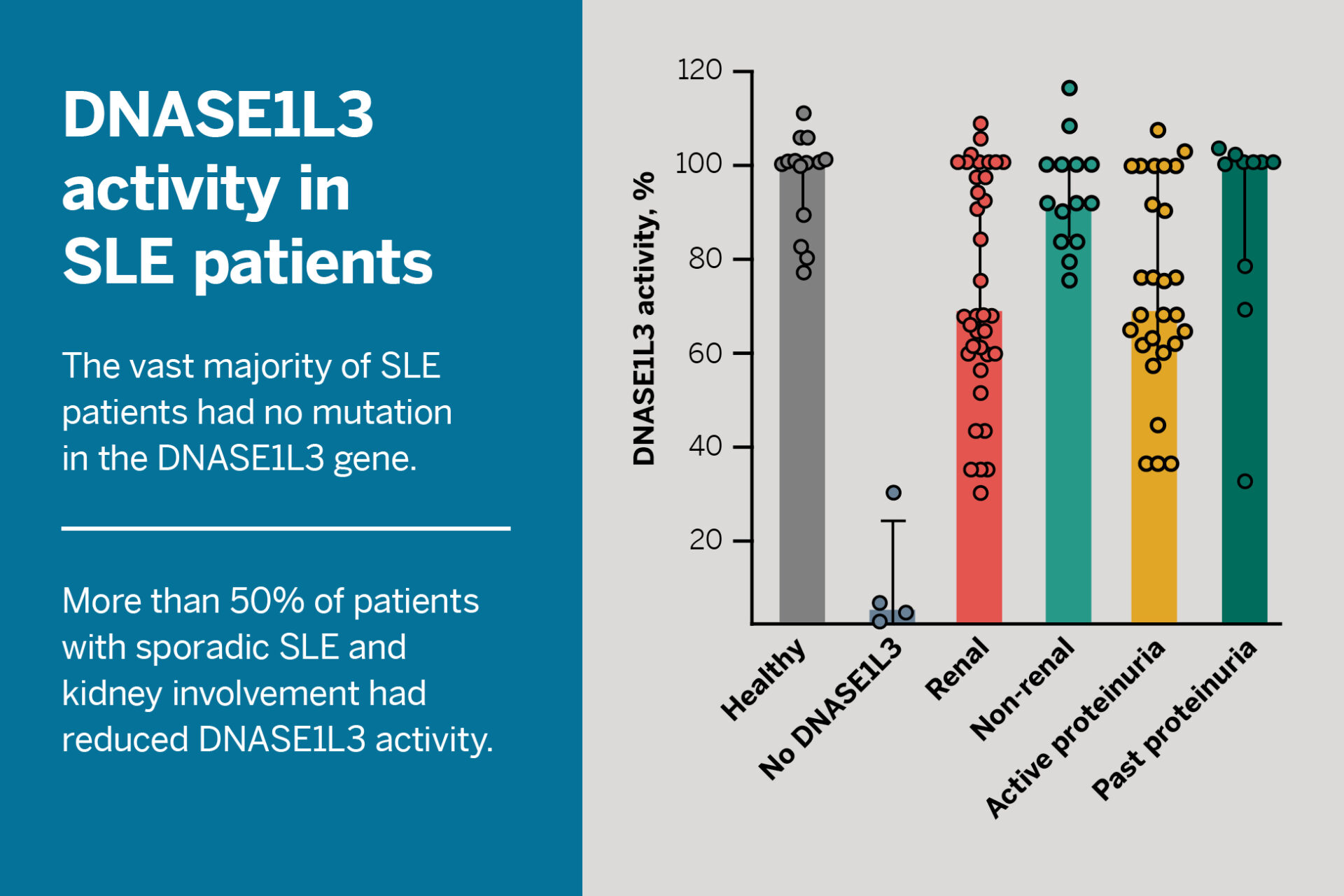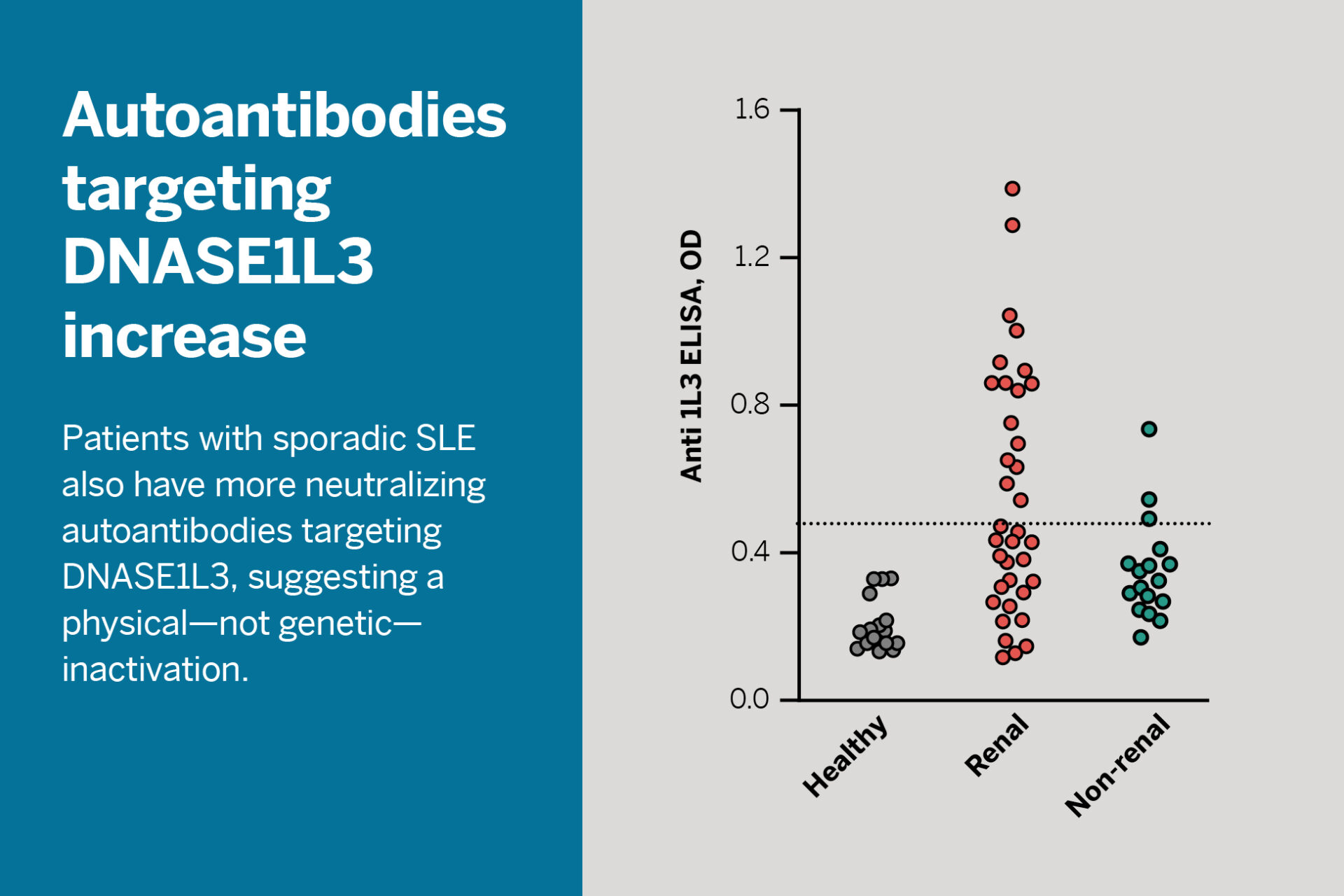| Rare inherited null mutations in the DNASE1L3 gene cause childhood lupus characterized by high titers of anti-double-stranded DNA (anti-dsDNA) antibodies and renal involvement. In a study in the Journal of Experimental Medicine, researchers led by Boris Reizis, PhD, and Jill P. Buyon, MD, examined DNASE1L3 enzyme activity in a cohort of patients with severe sporadic systemic lupus erythematosus (SLE). Their research identified a surprisingly common nongenetic disease mechanism, in which autoantibodies harbored by the patients react with the DNASE1L3 enzyme. |
“Because we found that the nongenetic deficiency of this enzyme was not uncommon, we could study many of these patients and some of the mechanistic details actually became more apparent.”
Boris Reizis, PhD
“Because we found that the nongenetic deficiency of this enzyme was not uncommon, we could study many of these patients and some of the mechanistic details actually became more apparent,” Dr. Reizis says. The DNASE1L3 enzyme helps break down microparticle-associated extracellular DNA. A reduction in its activity leads to an increase in extracellular DNA, which can prompt the immune system to increase the level of dsDNA antibodies and potentially result in SLE with nephritis.
“Rare genetic mutations can put a spotlight on the protein target, and by knowing the underlying problem one may be able to apply it to a much larger population of patients,” Dr. Buyon adds.








